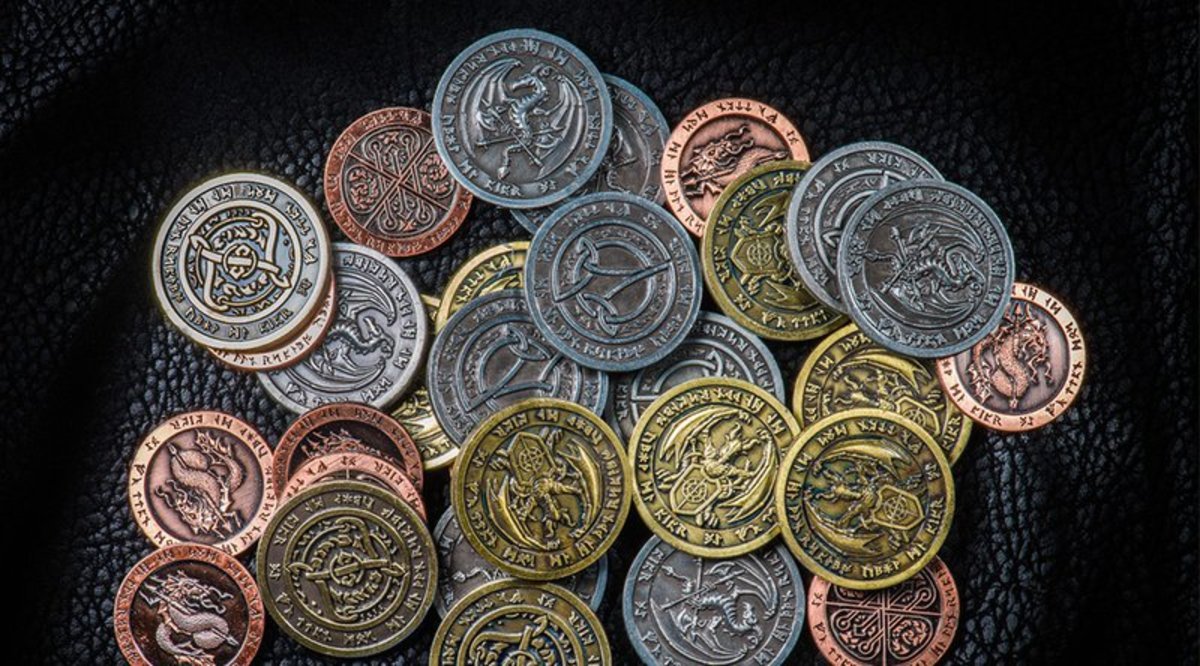
To many people in the Bitcoin community, altcoins are considered nothing more than scams. Part of the reason is that altcoin developers and promoters are often found telling people to purchase an altcoin for their own financial benefit; however, this is not the case for Monero developer Riccardo Spagni.
Spagni holds a relatively pragmatic view on altcoins. The Monero developer has told individuals with limited funds to not buy the altcoin. In fact, he has stated, “The most likely scenario is that Monero fails entirely.”
To many, Spagni’s unique take on the altcoin market, especially as a developer in the space, is quite refreshing. In a recent interview with Bitcoin Magazine, Spagni expanded on his views related to Monero and altcoins in general.
The Majority of Altcoins Are Outright Scams
Many people refer to altcoins as casinos and testnets. When asked for his opinion on this description of the altcoin market, Spagni said:
“The majority are outright scams. There's no mincing words with this, and I think it's absolutely disgusting. From obvious premined or instamined scams, to the more subtle mining scams that attempt to hide the premine from block explorers, there are a lot of scams meant to outrightly enrich the creators.
“Identifying scams is made doubly difficult because of the existence of professional, highly motivated groups that are behind them, who often co-opt innocent developers who think they're genuinely building something unique.”
In addition to the scams in the altcoin market, Spagni also sees Bitcoin clones, “corporate coins” (which are altcoins that have raised funds from investors), and a small number of coins that have something unique to offer. When it comes to those altcoins offering something useful or unique, Spagni claimed, “To fall into that last category is really hard. I'm not even sure Monero falls into it, although I do hope that it can get there.”
No Altcoins Are Currently Useful
When asked which altcoins he thinks have features that are useful today, Spagni simply replied, “None of them.”
In his view, the general lack of interest in altcoins and the security issues related to low-hashrate networks are the two main issues with any altcoin right now. Spagni explained:
“Seriously -- any of the altcoins with an actual useful feature (like Monero, of course) are plagued by a general lack of interest, and a basically insecure hashing network. A sustained attack against Monero's proof-of-work network would be expensive, but not expensive enough to stop a motivated attacker. Similarly, with only several hundred high capacity nodes scattered around the world, the cost of an isolation attack against end-user nodes is much lower than with Bitcoin.”
Spagni clarified that Monero or another altcoin could become secure in the future, but he also pointed out that anyone interested in using Monero should be aware of the risks associated with using it as a store of value.
“Sure, an attacker against the PoW network can't magically steal their Monero, but they could disruptively attack them when they need to spend those funds,” he said.
What Is the Point of Monero?
So if most altcoins are useless, then what’s the point of developing Monero? Spagni offered three reasons for Monero’s existence:
- “Monero is a place to experiment with things that Bitcoin simply can't experiment with right now. Stuff like our fixed minimum block reward to retain long-term mining incentives, or our so-called egalitarian PoW algorithm that closes the performance gap between CPUs, GPUs, and ASICs, to the point where ASICs may never be financially viable, or at least will not be performant enough to justify a complete abandonment of GPU mining.”
- “Monero is an independent fallback for Bitcoin that is created in much the same spirit as Bitcoin: an anonymous creator that disappeared after the community took it over, pure PoW with no crazy nonsense like overly complex PoS schemes, an alternate EC curve to Bitcoin's secp256k1, and specific differences (like the PoW and the minimum block reward) that make Monero more like ‘A Peer-to-Peer Electronic Cash System’ than anything else. Let me clarify that I am a huge believer in Bitcoin, and I'm not implying at all that Bitcoin will ever fail, but it's comforting to know that in the event of a major, massively disruptive break in Bitcoin there is something else out there.”
- “Monero is a truly fungible, truly private cryptocurrency, that is constantly trying to build on and improve its privacy. The way we view it is simple: one day, somewhere along the line, Monero's privacy is going to mean life or death for someone. They will be in a highly adversarial environment where an attacker's ability to track their Monero transactions means their death. It would be incredibly, incredibly irresponsible and reckless of us to treat our work on Monero's privacy as anything less critical than that, regardless of who our end users are. I do not want to be responsible for someone's death, and neither do any of the Monero contributors or the members of the Monero Research Lab or my fellow members of the Monero Core Team.”
Although ShapeShift CEO Erik Voorhees and Bitcoin Core contributor Peter Toddhavehinted that privacy-focused altcoins may be useful as appcoins for mixing Bitcoin transactions in the past, Spagni does not see things that way.
“Any rails in and out of Bitcoin are for convenience only,” he said. “They're a potential privacy leak, no matter whether you're offloading the counterparty risk to someone like ShapeShift or xmr.to, or you're using decentralized rails that will exist in the future. Monero's privacy features are built with the view that you will stay within the system as much as possible to ensure the greatest level of privacy possible.”
Privacy in Bitcoin
In terms of privacy and fungibility in Bitcoin, Spagni did have some positive things to say about CoinJoin. He pointed out JoinMarket as a particularly fantastic project, but he added:
“The downside to anything like JoinMarket is that it can't make Bitcoin fungible -- no privacy measures can, unless in the protocol and mandatory for every transaction. But the game theoretic dynamics that come into play with something like this are hard to predict and model -- maybe the concept of ‘taint’ will be significantly harder to track if JoinMarket and similar systems become commonplace, and then Bitcoin will be ‘fungible enough,’ until it isn't.”
Blockstream’s Andrew Poelstra recently talked about how Confidential Transactions can improve the effectiveness of CoinJoin at the 2016 MIT Bitcoin Expo, but it’s unclear if or when these two features will be implemented at the protocol level.
Kyle Torpey is a freelance journalist who has been following Bitcoin since 2011. His work has been featured on VICE Motherboard, Business Insider, NASDAQ, RT’s Keiser Report and many other media outlets. You can follow @kyletorpeyon Twitter.










